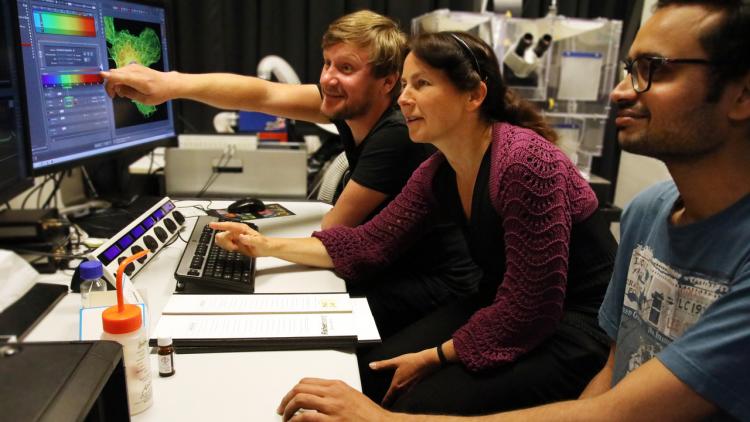UU scientists at the helm of two projects receiving Gravitation funds

The government announced the news last week. Research funder NWO has distributed the funds. In total, there were forty applications from science consortia, of which fifteen were invited for in-depth interviews.
Two of the seven projects that have been awarded the grant are led by Utrecht-based professors. Other UU scientists are also involved in these projects. In three of the remaining five projects, UU scientists are part of the research team.
Studying and controlling cells
In the "IMAGINE!" project, a group of scientists led by Anna Akhmanova, a professor of Cell Biology at UU, will study the way cells behave in living tissues. Their second research question is how these cells can be manipulated and controlled.
On UU's website, Akhmanova says that she wants to develop new techniques that will enable researchers to study the way drugs behave in the human body. “We are already able to do this in Petri dishes, but it is essential to study them in human tissues as well.”
The project has received 20.8 million euros. In addition to Akhmanova, research groups led by her UU colleagues Lukas Kapitein and UMCU professors Madelon Maurice, Jacco van Rheenen and Geert Kops are involved in the projects too. The Princess Máxima Center and the Biology Imaging Center will participate as well.
Efficient materials
The second project "from Utrecht" is QuMAT, which is looking to develop new, more efficient materials for the processing of information. On UU's website, project leader and Chemistry Professor Daniel Vanmaekelbergh talks about the growing need for energy due to the increased use of information technology. “Luckily, we’ve got lots of ground to cover still.”
Aside from researchers from Nijmegen, Groningen, Delft and Eindhoven, Utrecht’s professor of Physics Christiane Morais Smith is also involved in the QuMAT project. The applicants will receive 21.3 million euros.
Data revolution
Professor of Neuroscience Hilleke Hulshoff Pol, associated with the UMCU, is one of the applicants for the Samen Opgroeien project, in which scientists will study teenagers' development.
José van Dijck, who works at UU as a communication scientist, is one of the applicants involved with a project that studies the consequences of artificial intelligence and the data revolution on decision-making systems in our society. Together with Albert Meijer, professor of Public Innovation, she will lead a Utrecht-based research team.
Finally, the research group led by UMCU neuroscientist Nick Ramsey will take part in a large study that will investigate the interactions between the brain and the outside world.
Ten years of research
With the funds (142.7 million euros), the consortia will be able to conduct research for ten years. This comes down to two million euros a year, per project. The Gravitation funds were first awarded in 2012. In total, there have been five rounds, with a sixth coming up in the next academic year.
In comparison, the highest science grant in the Netherlands, the Spinoza Prize, awards a scientist 2.5 million euros, and can’t be won ten years in a row. Three of the main applicants who won this year’s Gravitation funds (Anna Akhmanova from Utrecht, Eveline Crone from Rotterdam and Jan van Hest from Eindhoven) are former Spinoza Prize winners.